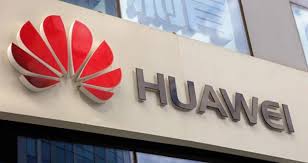The Criminal Pursuit of Huawei China: DOJ Brings Two Indictments

The Department of Justice has launched two separate criminal cases against Huawei China, the controversial Chinese telecommunications equipment provider. For years, US government officials have questioned the ownership, control and practices of Huawei, claiming that it is owned by the Chinese government and acting as an agent for Chinese interests.
At the end of January, the Justice Department announced two separate indictments against Huawei, and sought the extradition of Huawei’s CFO, Wanzhou Meng, from Canada. Recent reports have indicated that Canada intends to grant the US government’s request for extradition.
The first indictment, which was returned in the Eastern District of New York, charged Huawei and Meng with violating the US sanctions against Iran. The thirteen-count indictment includes bank fraud, conspiracy to defraud the United States, and conspiracy to obstruct justice.

The charges center on Huawei’s disguised ownership of Skycom, an unofficial subsidiary, which was used to secure otherwise prohibited U.S.-origin goods, technology and services, including banking services. Meng specifically misrepresented Huawei’s relationship with Skycom. To avoid investigation and prosecution relating to Huawei’s Iran operations, Huawei allegedly transferred key witnesses back to China and destroyed and concealed evidence.
In a second criminal case, the US Attorney for the Western District of Washington returned an indictment charging Huawei with wire fraud and obstruction of justice related to the theft of trade secrets from T-Mobile. According to the indictment, Huawei implemented a scheme to steal the Tappy robot system, T-Mobile’s phone-testing robot. A Huawei engineer stole of the Tappy arms and put the device in his briefcase. Huawei rewarded employees who were able to steal information related to the Tappy Robot.
The criminal case based on the violations of Iran sanctions is the more significant of the two criminal cases. The charges against Huawei and its CFO, Meng, focus on Huawei’s misrepresentations to several global financial institutions regarding Huawei’s business activities in Iran. Huawei misrepresented its ownership of Skycom by falsely asserting it was not affiliated with Huawei, that Huawei had limited business in Iran and that Huawei fully complied with US sanctions against Iran.
Huawei relied on a number of global banks to process US-dollar transactions. Under the Iran sanctions program, US banks are prohibited from conducting financial transactions related to Iran. Huawei repeatedly misrepresented its operations in Iran and global banks continued to process these transactions in reliance on Huawei’s false representations. One bank cleared more than $100 million worth of Skycom related transactions over a four-year period.
Huawei also made numerous false representations to the US government and US Congress. Huawei’s founder specifically lied to FBI agents concerning Huawei’s interactions with Iran companies and whether Huawei was in compliance with US trade sanctions and export controls.

In 2012 and 2013, press reports suggested that Huawei operated Skycom as an unofficial affiliate in Iran and that Meng served on the Skycom board of directors. Huawei and Meng repeatedly lied to various financial institutions about its relationship to Skycom and falsely claimed Huawei had divested its ownership interest in 2007.
In fact, Skycom was Huawei’s longtime affiliate and Huawei actually controlled the third-party company that allegedly purchased Skycom as a result of an orchestrated fake arms-length transaction. Meng specifically lied on several occasions to four financial institutions as a way to continue dollar-clearing, Euro-clearing and other related financial services.















